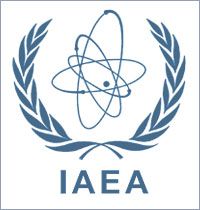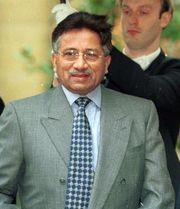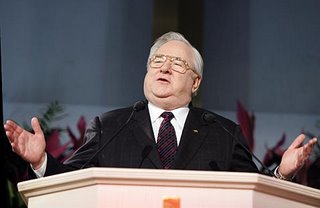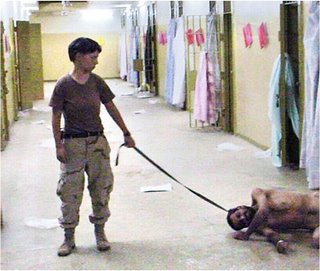
The IAEA has come out
blasting a recent report from the U.S. House Intelligence Committee regarding Iran's alleged uranium enrichment program. Interestingly, though not surprisingly, this situation seems to mirror what we saw four years ago in the run-up to war in Iraq.
The International Atomic Energy Agency wrote the leadership of the House Intelligence Committee on Wednesday, lambasting it for claiming that the Islamic republic "is currently enriching uranium to weapons grade."
Iran is far from that capability, the IAEA said. (Watch how the IAEA and the House disagree -- 2:00)
Rep. Mike Rogers, a Michigan Republican who sits on the Permanent Select Committee on Intelligence, which prepared the report, said the subcommittee's assertion is "very clear."
"It says that we don't believe that they've gotten there. But the point of that whole section is, they are trying to enrich uranium to weapons grade," he said.
The subcommittee's report also insinuates that the IAEA may be in cahoots with Tehran in covering up Iran's nuclear ambitions.
So, what are the similarities between Iran and Iraq?
- Dubious U.S. intelligence claims about weapons of mass destruction.
- Criticism of the IAEA over its monitoring practices and reports.
- Unsubstantiated claims of WMD development by a dissident.
Hmmmm. Curious.
And just who is this Iranian dissident who claims to have inside knowledge of Iran's nuclear weapons development?
On Thursday, Iranian dissident Alireza Jafarzadeh told reporters in New York that Iran was operating a laser uranium-enrichment program in its quest for a nuclear warhead.
The information was obtained by opposition sources, said Jafarzadeh, president of Strategic Policy Consulting Inc., a terrorism consulting firm. Those sources made the same claim in 2002.
The current operation, Jafarzadeh told reporters, was set up in the same area near Tehran as the program opposition sources announced in 2002.
However, an analyst for a group opposed to nuclear proliferation questioned the accuracy of Jafarzadeh's allegation.
"Why would Iran put a secret laser enrichment facility in the same place where it had it in the first place? To me, that just doesn't make a whole amount of sense," said Paul Brannan, a research analyst with the nonprofit Institute for Science and International Security.
This guy, aside from the fact that he runs a terrorism consulting firm (whatever the hell that is), doesn't sound all that much different than
"Curveball", the Iraqi informant who claimed to have inside knowledge of Saddam Hussein's WMD capabilities. As we found out, Curveball was a loose nut just looking for a free ride. Yet we apparently relied on his con-job - even though the Germans knew he was unstable - to support a course for war.
Deja vu...all over again. Brilliant!
Another worrisome point that has been reported to be
a part of the House intelligence report concerns the generation of electricity. According to the report, the authors wonder why an oil-rich nation such as Iran would even need nuclear energy to generate electricity. Couldn't they just use their vast reserves of crude oil to power the nation for generations to come?
To be blunt, that supposition is utter nonsense. You see, crude oil isn't used much to generate electricity in developed countries. It's far too inefficient and costly compared to coal, natural gas, water, wind and NUCLEAR generated electricity. It just isn't done. Period.
In fact, in 2004
petroleum was used for barely three-percent of total U.S. net electricity generation. It trailed coal, nuclear energy, natural gas and water - in that order - as the top electricity fuel sources in the U.S.
Apparently, those in the U.S. House of Representatives believe Americans are too ignorant and uninformed to know any different. They believe that more lies will allow them to gain support for action against Iran.
Just like with Iraq.
Yes, here we go again.









